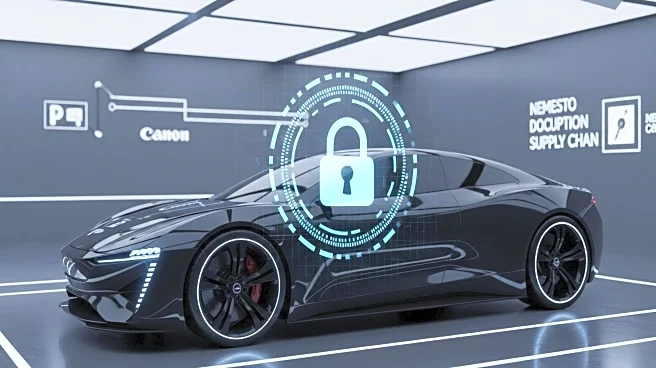What is the story about?
What's Happening?
Jaguar Land Rover (JLR), Britain's largest carmaker, is extending the shutdown of its factories until October 1 following a cyberattack in early September. The attack has paralyzed operations, affecting the production of approximately 1,000 cars per day across its three UK factories. The company is reportedly losing £50 million weekly, with many of its 33,000 employees told to stay home. The breach underscores the vulnerability of global businesses to sophisticated cyberattacks. JLR, owned by Tata Motors, failed to secure a cyber insurance deal before the incident, leaving it uninsured for the attack. The British government is engaging with JLR and its supply chain to mitigate the impact and support recovery efforts.
Why It's Important?
The cyberattack on JLR highlights the increasing threat of cybercrime to major industries and the potential economic repercussions. The shutdown not only affects JLR but also has a ripple effect on its supply chain, potentially leading to job losses and economic strain. The incident raises concerns about the preparedness of companies to handle cyber threats and the importance of cyber insurance. The British government is keen to support the automotive sector, which is vital to the national economy, and prevent further disruptions. This situation also emphasizes the need for robust cybersecurity measures across industries to protect against similar attacks.
What's Next?
JLR is working on plans to resume production while continuing its investigation into the cyberattack. The British government is involved in discussions to support the company and its supply chain, aiming to prevent job losses and economic fallout. The incident may prompt other companies to reassess their cybersecurity strategies and insurance coverage. As cyberattacks become more frequent and sophisticated, industries may need to invest more in cybersecurity infrastructure and training to safeguard their operations.















